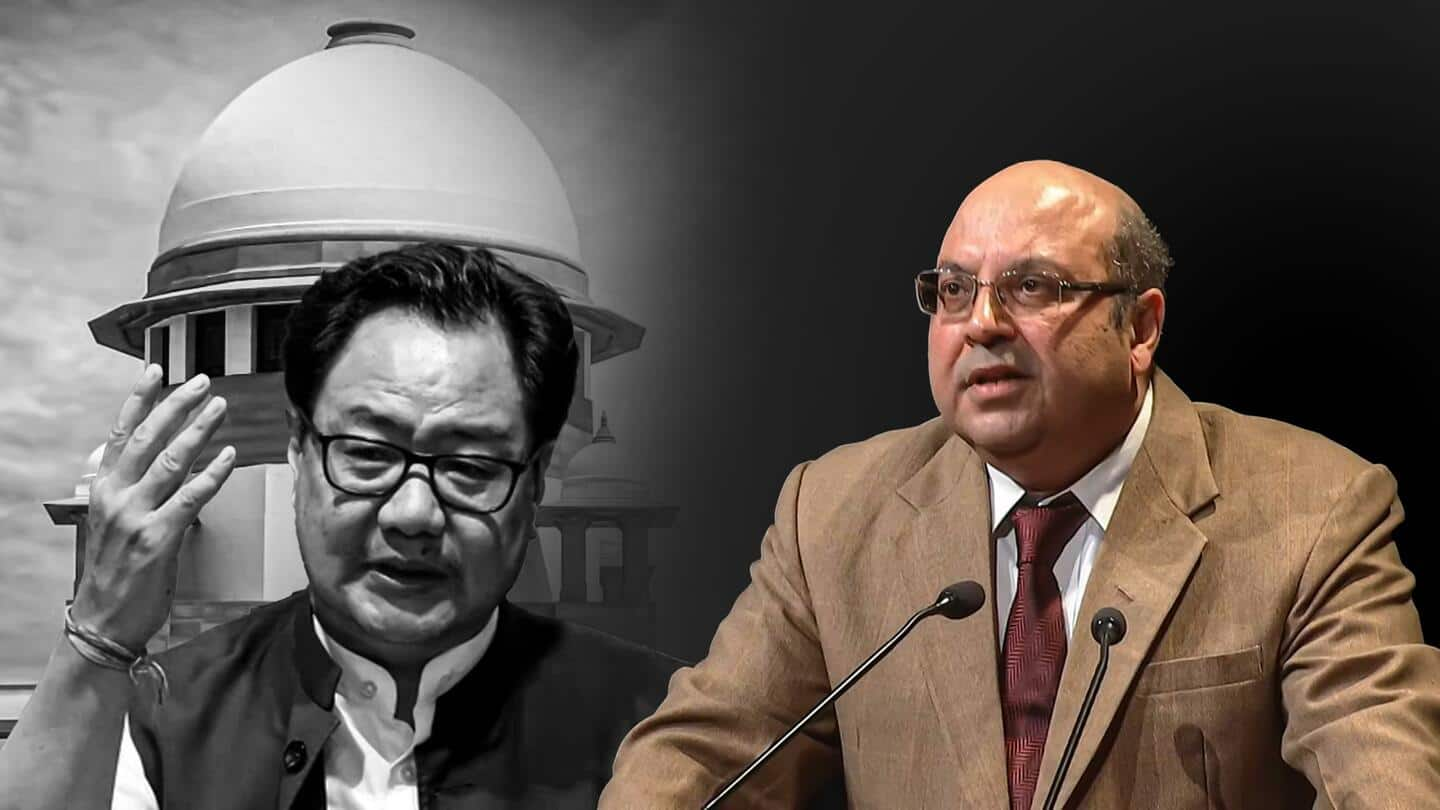
'Diatribe': Ex-Supreme Court justice Nariman slams Rijiju over collegium remarks
What's the story
Former Supreme Court judge Rohinton Fali Nariman Friday took a strong exception to Union Law and Justice Minister Kiren Rijiju's opposition to the SC Collegium system for judicial appointments. Calling Rijiju's statements a "diatribe," he said the government is bound to accept the SC's directions under constitutional provisions. He also termed the government's delay in accepting Collegium recommendations for judges as "deadly for democracy."
Context
Why does this story matter?
Justice Nariman's comments come amid an ongoing dispute between the government and the judiciary over judge appointments. Rijiju branded the collegium system "opaque" in November, claiming that India is the only country where judges appoint judges. Since 2014, the Bharatiya Janata Party (BJP)-led central government has been at odds with the judiciary, which accuses the former of seeking to control judicial appointments.
Statement
What did Justice Nariman say?
Terming the law minister's recent remarks against the SC Collegium system for the judges' appointment a "diatribe," Justice Nariman said the Centre was bound to follow the SC judgments given by the five-judge Constitution bench under Articles 144 and 145(3). "You may criticize it... But never forget...as an authority, you are bound by that judgment, right or wrong," he said.
Speech
'Deadly' for democracy: Nariman over Centre's delay in accepting recommendations
Justice Nariman also suggested that the Constitution bench set a deadline for the government to respond to the Collegium's recommendations. "If the government has nothing to say within a period, let's say 30 days, then it would be taken that it has nothing to say," he said. "This sitting on names is very deadly against democracy in this country," Justice Nariman remarked.
Tussle
Ongoing judiciary v/s Centre faceoff
The tussle between the government and the SC Collegium over judges' appointments has been ongoing for some time. The government isn't satisfied with the current procedure and wants its representatives in the Collegium. Last Tuesday, Rijiju also objected to the SC releasing the government's objections and confidential reports by the Research and Analysis Wing (RA&W) and Intelligence Bureau (IB) on candidates recommended for judges.
Trigger
Repeated rejection of SC Collegium's recommendations
The conflict between the SC Collegium and the Centre started when the Law Ministry repeatedly rejected the former's recommendations for judicial appointments, as per reports. In November 2022, only two of the SC Collegium's 21 recommendations for appointments to high courts were accepted. Those accepted included the appointment of Santosh Govind Chapalgaonkar and Milind Manohar Sathaye as Bombay HC additional judges.
Objection
Government objected to 3 candidates recommended for judges
A week ago, the SC Collegium published the government's objections to three candidates recommended for judges, including openly homosexual advocate Saurabh Kirpal, and its counter on the SC website. Notably, Kirpal has already been recommended twice for elevation as a Delhi High Court judge by the SC Collegium, once when it was led by then-CJI NV Ramana and again under current CJI DY Chandrachud.
About
What is the collegium system?
The collegium system allows the CJI and a panel of four senior-most judges of the Supreme Court to recommend appointments and transfers of judges. It was framed by the apex court's judgments in the "Three Judges Case" (October 28, 1998). However, the collegium system was earlier criticized by the Centre for creating an empire within the empire.